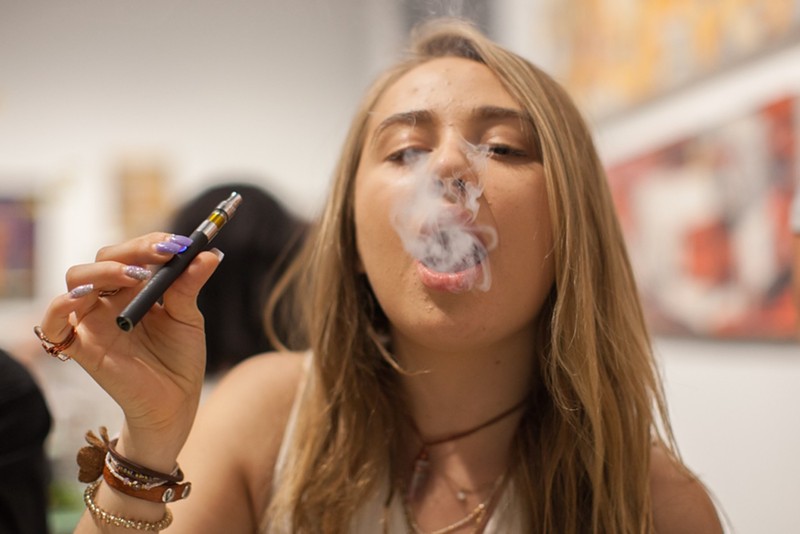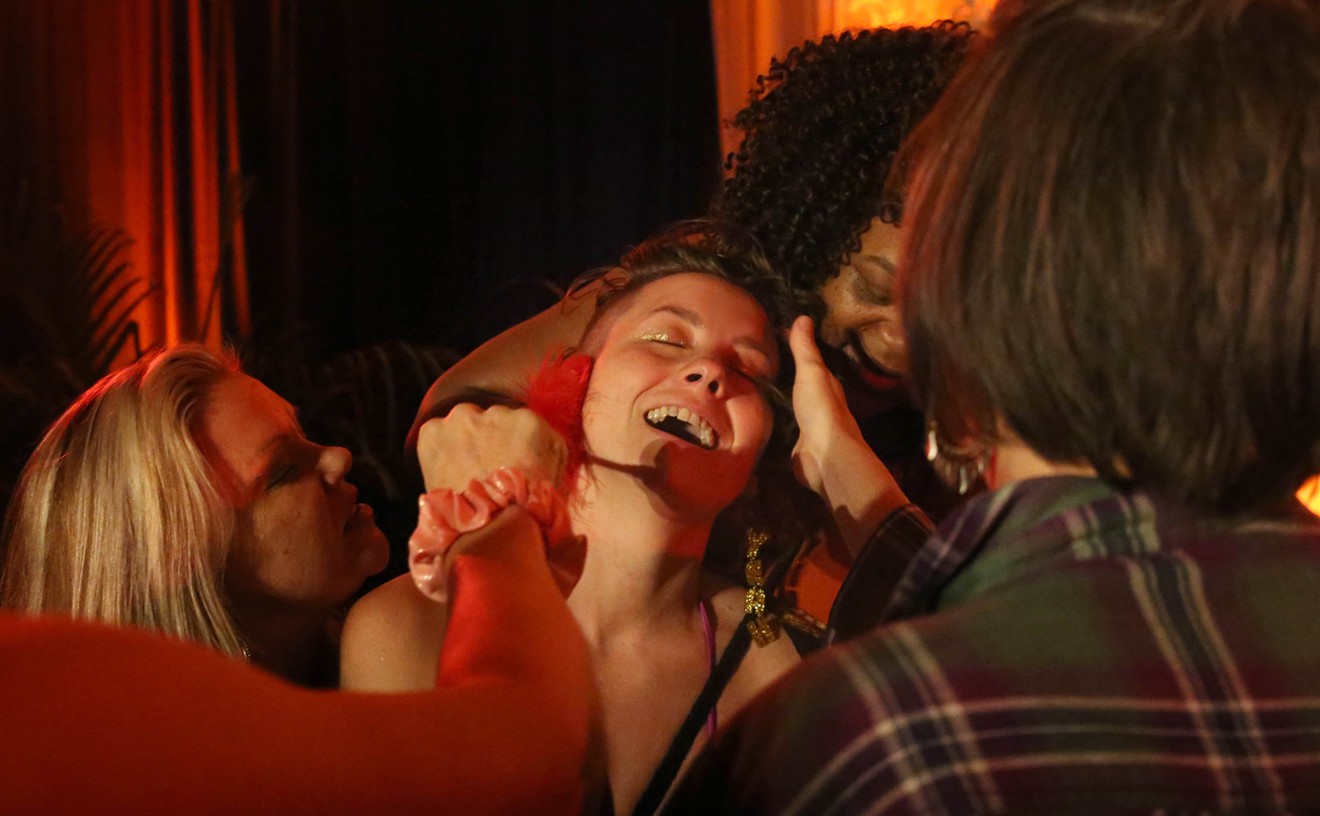The latest failure of statewide legislation seeking to curb youth tobacco use could be the final nail in the coffin, advocates fear.
After an effort to ban flavored tobacco products statewide failed in 2022, two narrower bills were introduced during this legislative session. Senate Bill 24-022 sought to let counties regulate the sale of tobacco products, including flavored products, as cities can. House Bill 24-1356 would have prohibited the sale of electronic smoking devices that aren't authorized by the U.S. Food and Drug Administration.
HB 1356 cleared its final vote on May 4, but only after it was rewritten to remove the ban on non-authorized devices. SB 22 was shut down entirely, being rejected by one vote in a House committee in March after passing the Senate.
"This is a reflection of our legislators prioritizing profits over the health of Colorado's kids," says Jodi Radke, regional advocacy director of the Campaign for Tobacco-Free Kids. "It's one year after the other of failed opportunities by our legislature to protect Colorado's kids."
The successful bill no longer prohibits the sale of non-authorized electronic smoking devices, but it does give the Colorado Attorney General's Office the authority to enforce age restrictions on electronic smoking devices, effectively increasing penalties for retailers caught selling to minors.
But Radke says her organization is now pessimistic that future state-level policy for nicotine and tobacco will come to fruition, particularly as Governor Jared Polis has openly opposed previous efforts.
One in six Colorado high-schoolers uses electronic cigarettes, according to the most recent Healthy Kids Survey from 2021. That's down from the peak of 27 percent in 2017, but still above the national average of 11 percent in 2021. Colorado teens are also continuing to use as they grow up, with the share of 18- to 24-year-olds who regularly vape rising from 15 percent to almost 25 percent from 2020 to 2022, data from the state health department shows.
This issue is one of the reasons that state Senator Kyle Mullica, a registered nurse, came to the legislature in the first place, he says. He sponsored both SB 22 and HB 1356, in addition to the failed flavor ban in 2022 and a successful measure that raised the minimum age for buying nicotine and tobacco products to 21 in 2020.
"My goal is to try to keep these products out of our youths' hands," Mullica says. "It's not easy, but we continue to move the ball forward on this. You can't always get everything you want on every single bill. That's reflective of this year. But it's important that you don't stay stagnant, as well."
Mullica celebrates the passage of HB 1356, even though it was rewritten. "Those are the changes we had to make to get it through," he says.
In its original form, HB 1356 received swapped reactions from pro- and anti-smoking groups. Organizations including the American Cancer Society and American Lung Association opposed the bill, while tobacco companies Altria and Reynolds America supported it.
"This is a cigarette industry-sponsored bill intended to clear the market," says Alex Clark, CEO of Consumer Advocates for Smoke-free Alternatives Association (CASAA). "HB 1356 still targets vaping products that are very popular among people who are quitting smoking. ... The FDA continues arbitrarily denying authorizations for any nicotine vapor product in flavors other than tobacco."
Tobacco groups fought against SB 22, while it was backed by numerous health organizations and 21 out of 35 senators.
The House Business Affairs & Labor Committee killed the bill on March 7, with members citing concerns that counties banning flavored nicotine and tobacco products would hurt the sales of local vape businesses.
"There's a big industry that doesn't want to see that type of regulation," Mullica says. "We have to work within our means and live to fight another day."
Radke says these recent state-level legislative failures have inspired her organization to focus on local nicotine and tobacco policy instead.
Several Colorado cities have banned flavored tobacco or vaping products themselves, including Aspen, Boulder, Carbondale, Edgewater, Glenwood Springs and Snowmass Village. The Denver City Council passed a similar ban in 2021, but it was vetoed by the mayor.
"Looking at state-level policy and legislation, I feel less hopeful," Radke says. "It's incumbent upon the state to serve as a safety net to protect our state's kids. Our legislators aren't doing that. To expect that these trends will reverse themselves without some type of policy intervention is a real oversight and a missed opportunity."
But even facing repeated rejection from his colleagues, Mullica says he intends to bring forward additional tobacco-use-targeting legislation in future sessions.
"There's too much to lose to just sit idly by," he says.

Audio By Carbonatix
[
{
"name": "Air - MediumRectangle - Inline Content - Mobile Display Size",
"component": "12017618",
"insertPoint": "2",
"requiredCountToDisplay": "2",
"watchElement": ".fdn-content-body",
"astAdList": [
{
"adType": "rectangle",
"displayTargets": "mobile"
}
]
},{
"name": "Editor Picks",
"component": "17242653",
"insertPoint": "4",
"requiredCountToDisplay": "1",
"watchElement": ".fdn-content-body",
"astAdList": [
{
"adType": "rectangleLeft",
"displayTargets": "desktop|tablet"
},{
"adType": "rectangleRight",
"displayTargets": "desktop|tablet|mobile"
}
]
},{
"name": "Inline Links",
"component": "18838239",
"insertPoint": "8th",
"startingPoint": 8,
"requiredCountToDisplay": "7",
"maxInsertions": 25
},{
"name": "Air - MediumRectangle - Combo - Inline Content",
"component": "17261320",
"insertPoint": "8th",
"startingPoint": 8,
"requiredCountToDisplay": "7",
"maxInsertions": 25,
"watchElement": ".fdn-content-body",
"astAdList": [
{
"adType": "rectangleLeft",
"displayTargets": "desktop|tablet"
},{
"adType": "rectangleRight",
"displayTargets": "desktop|tablet|mobile"
}
]
},{
"name": "Inline Links",
"component": "18838239",
"insertPoint": "8th",
"startingPoint": 12,
"requiredCountToDisplay": "11",
"maxInsertions": 25
},{
"name": "Air - Leaderboard Tower - Combo - Inline Content",
"component": "17261321",
"insertPoint": "8th",
"startingPoint": 12,
"requiredCountToDisplay": "11",
"maxInsertions": 25,
"watchElement": ".fdn-content-body",
"astAdList": [
{
"adType": "leaderboardInlineContent",
"displayTargets": "desktop|tablet"
},{
"adType": "tower",
"displayTargets": "mobile"
}
]
}
]












